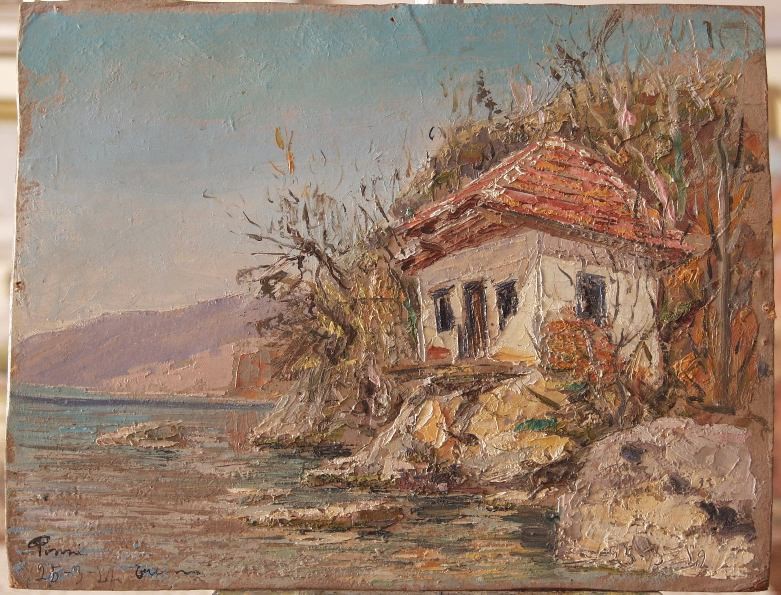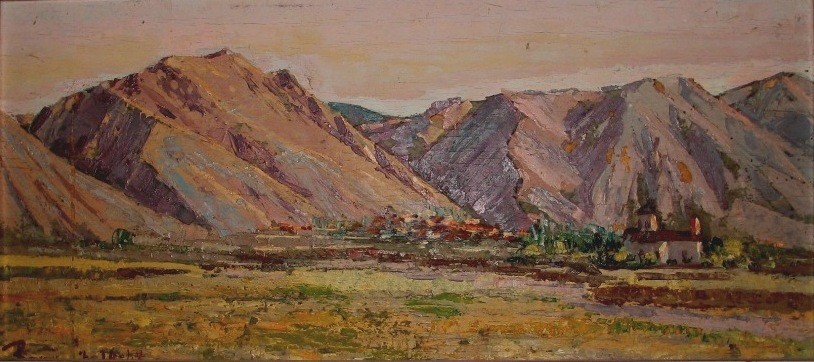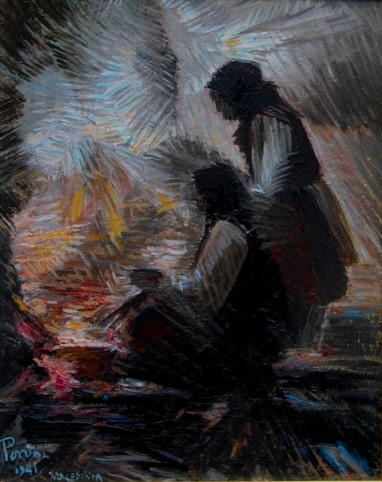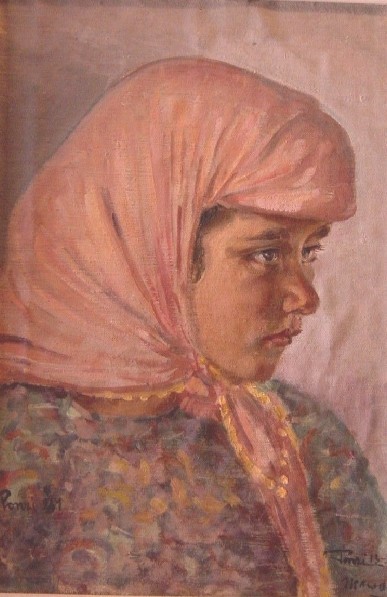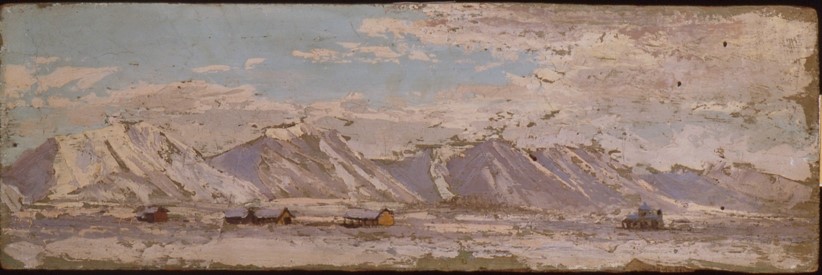Born in Borgo San Donnino (Fidenza) on 26.10.1902, died in Fidenza on 31.01.1992. Ettore Ponzi studied at the Paolo Toschi Art Institute in Parma with Paolo Baratta, Guido Marussig and Pietro Berzolla, and he got his degree in 1934.
In 1936 and 1937 he was at the Military Academy of Salerno. He participated together with his friend Oreste Emanuelli, another painter from Fidenza, in the second edition of the national competition Città di Cremona.
Called to arms and sent to Albania on 5/1/1941, he remained in the Balkans, participating in military operations until 9/9/1943 obtaining a first Cross of Merit. Numerous works of painting are preserved from this period: Albanian landscapes, portraits and life scenes.
On September 8, 1943 he was in Berat (Albania) and for four months he lived hunted in the mountains in the condition of Partisan Abroad. On December 31, captured by pro-German loyalists, he was handed over to the Germans in Elbasan.
On 30 January 1944 he was admitted to the Semlin concentration camp hospital in Belgrade for pain in his left lung and high fever. He was discharged in March of the same year and embarked on a hospital ship bound for Vienna along the Danube, to then be transferred internally to the Wietzendorf concentration camp. where he remained until the end of the conflict in April 1945. For this experience of his Military Internship he will then be awarded a second Cross of Merit. This bitter experience is documented in around 40 works of pencil and watercolor.
Returned in Italy in August 1945 he found his city wounded by the aerial bombardment and his house destroyed. He settled with his family in a ruined palace placed in the flank of the apse of a cathedral, this gave him the opportunity to witness in his paintings the state of the monument and its neighborhood. He was mainly a landscape and portrait painter. Ponzi taught at the middle schools of Piacenza, Fiorenzuola, Salsomaggiore and Fidenza. Member of the diocesan commission for sacred art, he was awarded in 1983 with the title of Commander of the Pontifical Order of San Gregorio Magno.
Ettore Ponzi was in Albanian part of Macedonia and Ohrid region in the war years of 1941-1943 where he painted people in traditional clothes, churches, monasteries, mosques and of Korcha, Ohrid and the neighboring villages.
More information: http://www.ponziettore.it/albania.html
